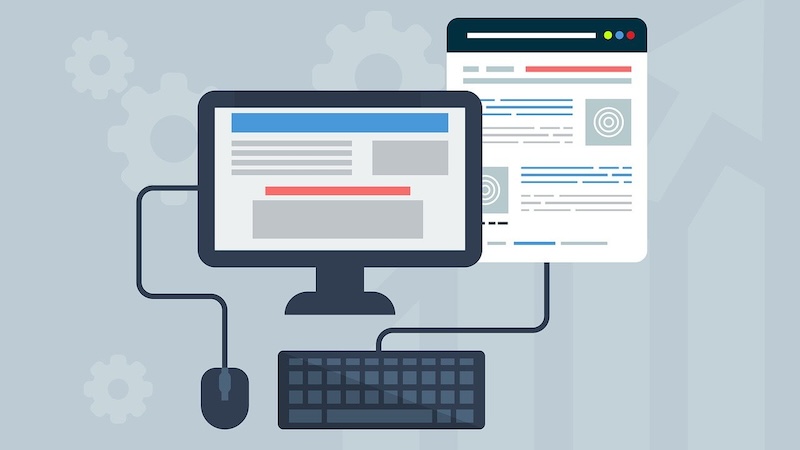
In the digital age there is no way around having your own website. Regardless of whether you are just starting a company, want to establish yourself as a freelancer or simply run your own blog – a professional online presence is essential to be visible and operate successfully. But how can you create your own homepage without prior technical knowledge? In this article we will guide you through the essential steps. Here you will learn how website builders make your work easier and how you can easily start your online presence.
1. The first step: Buy a suitable domain
Before you can create your website, you need a domain – the digital address at which your site can be accessed online. Choosing the right domain is crucial because it represents an important part of your online presence. Here are some tips for choosing your domain:
- Short and succinct: The domain should be easy to remember and straightforward to enter.
- Relevance: Ideally, the domain describes the content of your website or your offer.
- Ending: In Germany, many prefer .de domains because they are considered trustworthy and country-specific.
2. Technology made easy: Create a website with the homepage builder
After purchasing your domain, it's time to create your website. There are different options, depending on how much control and individuality you want for your site. It is particularly easy for beginners to use a homepage builder, for example from providers such as checkdomain.de. With such tools you can design an attractive website quickly and without any programming knowledge.
3. To get your website found: understand and apply SEO
A homepage alone is not enough to be successful on the Internet. You need to make sure your site is found – this is where SEO comes into play. SEO includes all measures that help your website appear at the top of the results in search engines such as Google.
Important SEO strategies:
- Keyword optimization: Be sure to use relevant search terms (keywords) that potential customers might enter into Google.
- Technical SEO: These include factors such as fast loading times, mobile optimization and a well-structured website.
- Backlinks: Links to your site from other trusted websites improve your search engine rankings. You should therefore seek collaborations or publish guest articles on other sites.
A well-optimized website leads to higher traffic and therefore more potential customers or readers. Tools like Google Analytics can also help you analyze the behavior of your website visitors and continually improve your site.
4. Valuable resources: Use internal and external knowledge
Luckily, there are many valuable resources that can help you create your website. For example, information from the federal government's business start-up portal, which provides helpful tips for founders, is particularly useful. You can also take advantage of current developments in the tech world, for example by following online politics articles. This information is not only important for driving your business forward, but can also be incorporated into your SEO strategy – for example by adapting relevant keywords.
In addition to external sources, you can also find a variety of helpful articles on the topics of founding a company and digital tools under Start-Ups or SEO itself.
5. Conclusion: Step by step to your own homepage
Creating your own homepage is now easier than ever. From purchasing the domain to choosing a suitable hosting provider, there are numerous options to make your start easier.
With this guide you have the basics to successfully create your own homepage. If you need more information or are looking for further tips, it's worth taking a look at the tools and offers from checkdomain.de, where you can not only buy your domain, but also create your website.
Source: https://www.basicthinking.de/blog/2024/10/17/homepage-selbst-erstellen-ohne-programmier-vorkenntnisse/


